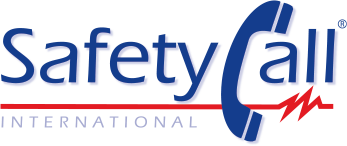Rick Kingston, PharmD
President, Regulatory and Scientific Affairs & Sr. Clinical Toxicologist
Many SafetyCall clients that manufacturer and distribute dietary supplements have likely seen the
recent press release by FDA Commissioner Dr. Scott Gottlieb.
One thing that is clear, the FDA plans to crack down on companies that intentionally adulterate their products with unapproved ingredients. These companies put responsible manufacturers at risk by tarnishing the reputation of the industry and eroding confidence in those companies and their products that help consumers lead healthy lives.
In addition to enhanced monitoring for adulterated products, the Agency plans to improve their public communications to quickly identify and warn consumers of these products as well as call out companies for unapproved labeling that crosses over into the drug space. This will undoubtedly include efforts to modernize MedWatch/CAERS and their safety surveillance systems. As an example, the FDA is considering efforts to make
adverse event reporting directly to the Agency more streamlined with apps that allow submitting pictures of products along with reports of adverse effects. Companies should also expect more scrutiny regarding adverse event reporting and enforcement as a way to ensure product safety.
Some of these efforts may be a harbinger for dealing with the emergence of CBD products that, based on FDA’s position, contain an illegal ingredient. The Agency has struggled with enforcement of mainstream
dietary supplements while being criticized for taking no action against CBD containing supplements.
The new Botanical Safety Consortium that the Agency is putting together may allow for a more fluid discussion on a “path to citizenship” for CBD containing products as part of the bigger picture. A big concern for currently marketed CBD products regards development and application of GMPs which does impact consumer safety.
Lastly, industry should expect efforts to move forward with a “mandatory listing requirement” for dietary supplements in commerce which would allow FDA more opportunities to identify and take action against bad actors and their products.
Stay tuned for a changing regulatory landscape in the world of supplements!

Rick brings over 30 years of professional experience to the SafetyCall team. His contributions are broad in the areas of clinical toxicology, pharmacology, poison control, product post-market surveillance, and drug and dietary supplement safety. He has helped to shape national policy relating to product safety in many areas and regulatory jurisdictions including, EPA, FDA, and CPSC regulated products. Rick also enjoys his academic affiliation with both the University of Minnesota College of Pharmacy and the University of Mississippi’s National Center for Natural Product Research, which is an FDA Center of Excellence. He enjoys national speaking engagements where he shares his vast knowledge of product stewardship including best practices related to adverse event post-marketing surveillance and regulatory reporting of incident data.



